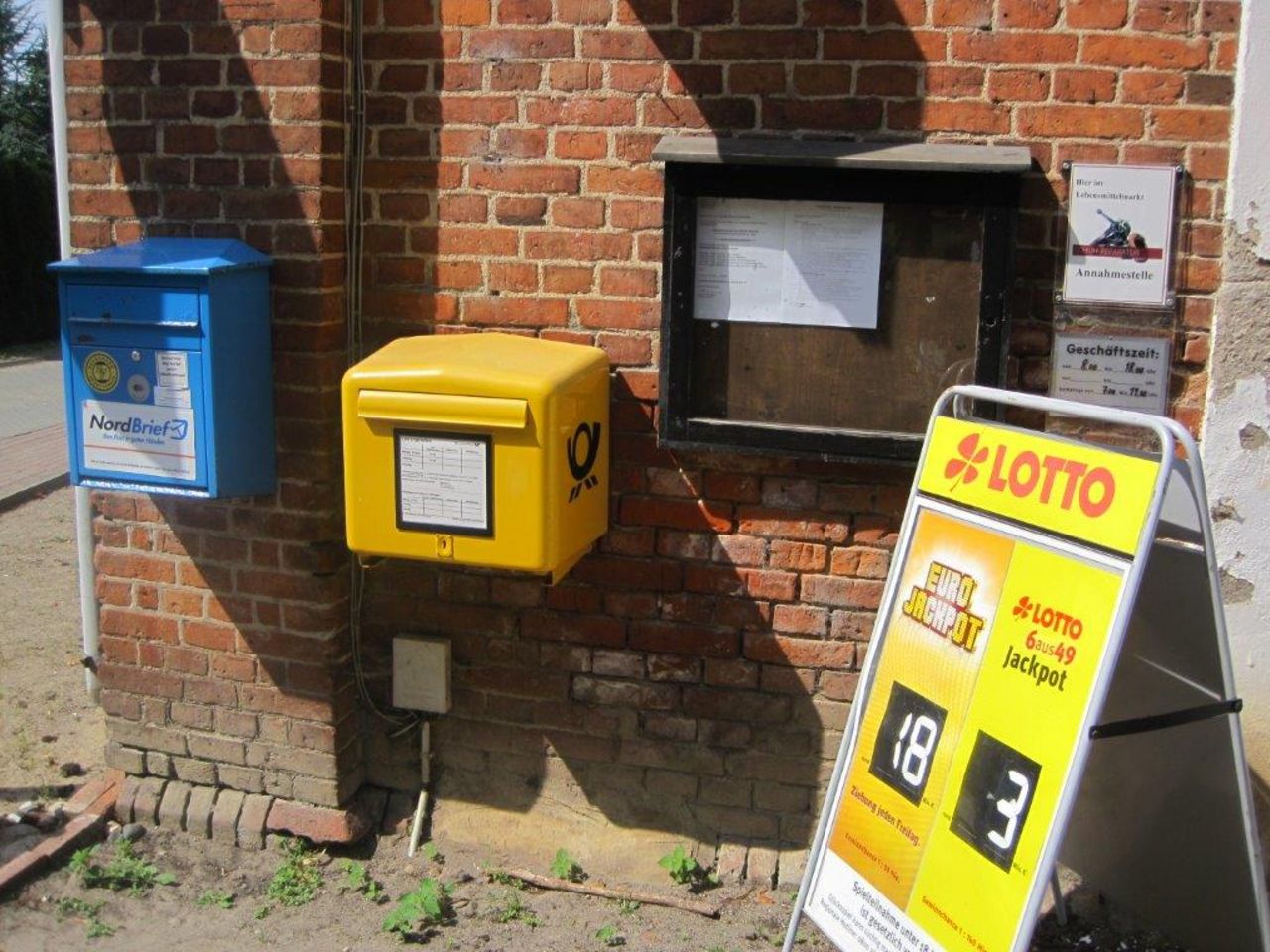Project
Common Agricultural Policy – Future developments of the 2. Pillar of CAP?

Elaboration and analysis of proposals for further development of the 2nd pillar of EU agricultural policy
The 2. Pillar of CAP belongs to the Common Agricultural Policy, but simultaneously addresses the Cohesion Policy. It is situated between the poles of sector-related and regional policy. Furthermore, it must contribute to the overall climate and environmental EU-objectives. We analyse in our project current policy instruments and elaborate proposals for future adjustments.
Background and Objective
Rural development policy in Germany is mainly determined by EU-regulations. Therefore, we concentrate on the EU-proposals for the 2. Pillar of CAP. Activities dealt with the new legislation on rural development for the programming period 2014-2022. And in recent analyses we focussed on the CAP Strategic Plans after 2023.
Approach
We analyse options of well-designed measures supporting rural development. We take into account changing conditions like the CAP-reform, globalisation and demographic changes. We look at the requirements for new measures as well as at improvements of the effectiveness and efficiency of currently implemented measures.
Data and Methods
We mainly use results and expertise of other theme-related research and evaluation projects of Thuenen-Institutes and prepare their finding in view of our research questions: Is the design of the 2. Pillar 2014 – 2020 in line with the experiences of the former period? Does the 2. Pillar contributes to climate protection? Does greening provide an impetus for biodiversity? A how the new Eco-Schemes could be assessed?
Preliminary Results
We already published analyses with regard to the construction of the 1. and 2. Pillar and neighboring policy fields like regional policy (only available in German).
Thünen-Contact

Involved Thünen-Partners
Funding Body
-
Federal Ministry of Food und Agriculture (BMEL)
(national, öffentlich)
Duration
1.2003 - 12.2024
More Information
Project status:
ongoing
Publications to the project
- 0
Martinos H, Matthews A, Skouras D, Pazos-Vidal S, Röder N, Grajewski R, Krämer C (2022) Der GAP-Reformprozess für die Zeit nach 2020 aus interinstitutioneller Sicht. Braunschweig: Thünen-Institut für Lebensverhältnisse in ländlichen Räumen, 2 p, Project Brief Thünen Inst 2022/43, DOI:10.3220/PB1669041665000
- 1
Martinos H, Matthews A, Skouras D, Pazos-Vidal S, Röder N, Grajewski R, Krämer C (2022) Governance: the reform process of the CAP post 2020 seen from an inter-institutional angle. Braunschweig: Thünen Institute of Rural Studies, 2 p, Project Brief Thünen Inst 2022/43a, DOI:10.3220/PB1669042120000
- 2
Martinos H, Matthews A, Skouras D, Pazos-Vidal S, Röder N, Grajewski R, Krämer C (2022) Governance: The reform process of the CAP post 2020 seen from an inter-institutional angle : study requested by the AGRI Committee [online]. Brussels: European Parliament Policy Department for Structural and Cohesion Policies, 116 p, zu finden in <https://www.europarl.europa.eu/thinktank/en/document/IPOL_STU(2022)699639> [zitiert am 16.11.2022], DOI:10.2861/865460
- 3
Martinos H, Matthews A, Skouras D, Pazos-Vidal S, Röder N, Grajewski R, Krämer C (2022) Studie für den AGRI-Ausschuss - Steuerung: Der GAP-Reformprozess für die Zeit nach 2020 aus interinstitutioneller Sicht : Zusammenfassung [online]. Europäisches Parlament, Fachabteilung Struktur- und Kohäsionspolitik, Generaldirektion Interne Politikbereiche, 4 p, zu finden in <https://www.europarl.europa.eu/thinktank/en/document/IPOL_STU(2022)699639> [zitiert am 14.11.2022]
- 4
Becker S, Grajewski R, Rehburg P (2022) Where does the CAP money go? : Design and priorities of the draft CAP Strategic Plans 2023-2027. Braunschweig: Johann Heinrich von Thünen-Institut, 70 p, Thünen Working Paper 191a, DOI:10.3220/WP1655118238000
- 5
Becker S, Grajewski R, Rehburg P (2022) Wohin fließt das Geld? Finanzielle und inhaltliche Schwerpunkte der eingereichten GAP-Strategiepläne 2023 bis 2027. Braunschweig: Johann Heinrich von Thünen-Institut, 72 p, Thünen Working Paper 191, DOI:10.3220/WP1654080928000
- 6
Röder N, Grajewski R (2019) Wird die GAP durch das neue Umsetzungsmodell zielorientierter in Hinblick auf den Natur-, Umwelt- und Klimaschutz? Loccumer Prot 2019,05:73-86
- 7
Fährmann B, Grajewski R (2018) Will the future CAP lead to less implementation costs and higher impacts of Rural Development Programmes? : paper prepared for presentation for the 162nd EAAE Seminar The evaluation of new CAP instruments: Lessons learned and the road ahead ; April 26-27, 2018 Corvinus University of Budapest, Budapest, Hungary. 25 p
- 8
Fährmann B, Grajewski R, Reiter K (2016) Was kostet nationale Verwaltungen europäische Förderpolitik : Analyse von Implementationskosten im Rahmen der Evaluierung ländlicher Entwicklungsprogramme. In: AWV (ed) Bürokratieentlastung und bessere Rechtsetzung. Eschborn: Arbeitsgemeinschaft für wirtschaftliche Verwaltung, pp 35-38
- 9
Weingarten P (2014) Ländliche Entwicklung - Anforderungen und Chancen aus Sicht der Wissenschaft. Landentwickl Aktuell 20:48-51
- 10
Fährmann B, Grajewski R (2014) Programmierung: zwischen Formalismus und innovativen Förderansätzen. LandInForm(2):14-15
- 11
Fährmann B, Grajewski R, Reiter K (2013) ELER-Maßnahmen ab 2014: Günstig oder wirksam. LandInForm(4):44-45
- 12
Grajewski R, Fährmann B, Pollermann K (2012) Stellungnahme des Instituts für Ländliche Räume des Johann Heinrich von Thünen-Instituts (vTI) zum Antrag der Fraktion BÜNDNIS 90/DIE GRÜNEN "Strukturfonds zukunftsfähig für Schleswig-Holstein gestalten" : Umdruck Landtag Schleswig-Holstein 17/3531 [online]. Kiel: Schleswig-Holsteinischer Landtag, 10 p, zu finden in <http://www.landtag.ltsh.de/infothek/wahl17/umdrucke/3500/umdruck-17-3531.pdf> [zitiert am 25.04.2012]
- 13
Tietz A (2012) Was bringt der ELER künftig der Land- und Ernährungswirtschaft? LandInForm(2):42-43
- 14
Grajewski R, Tietz A (2012) Was die GAP-Reform der ländlichen Entwicklung bringt. LandInForm(1):48-49
- 15
Grajewski R, Bathke M, Bergschmidt A, Bormann K, Eberhardt W, Ebers H, Fährmann B, Fengler B, Fitschen-Lischewski A, Forstner B, Kleinhanß W, Nitsch H, Osterburg B, Plankl R, Raue P, Reiter K, Röder N, Sander A, Schmidt TG, Tietz A, Weingarten P (2011) Ländliche Entwicklungspolitik ab 2014 : eine Bewertung der Verordnungsvorschläge der Europäischen Kommission vom Oktober 2011. Braunschweig: vTI, 302 p, Arbeitsber vTI Agrarökonomie 2011/08
https://literatur.thuenen.de/digbib_extern/bitv/dn049621.pdf
- 16
Grajewski R (2011) vTI-Bericht zu den EU-Vorschlägen für die ländliche Entwicklungspolitik. Agra Europe (Bonn) 52(11):D1-28
- 17
Tietz A (2010) Auswirkungen von Health Check und EU-Konjunkturprogramm auf die ländlichen Entwicklungsprogramme der deutschen Bundesländer. Braunschweig: vTI, VI, 52 p, Arbeitsber vTI Agrarökonomie 2010/03
https://literatur.thuenen.de/digbib_extern/bitv/zi044148.pdf
- 18
Moser A (2010) Halbzeitbewertung von PROFIL : Teil 2 - Kapitel 18 ; Berufsbildungs- und Informationsmaßnahmen für die Wirtschaftsakteure in den unter den Schwerpunkt 3 fallenden Bereiche (ELER-Code 331) ; Transparenz schaffen - von der Ladentheke bis zum Erzeuger (Code 331-A). Braunschweig: vTI, 17 p
- 19
Fährmann B, Grajewski R, Koch B, Peter H (2008) Die Politik zur ländlichen Entwicklung im Rahmen der Gemeinsamen Agrarpolitik - von den Ursprüngen bis zur Gegenwart. Berlin: Fachhochsch für Verwaltung und Rechtspflege, 86 p
- 20
Grajewski R, Mehl P (2008) Variable Politik trotz wachsender Verflechtung : Netzwerkgovernance am Beispiel der Politik zur Entwicklung ländlicher Räume. SchrR Eur Zentrum Föderalismus Forsch 32:284-310

![[Translate to English:] Logo des Bundesministerium für Ernährung und Landwirtschaft](/media/allgemein/logos/BMEL_Logo.svg)